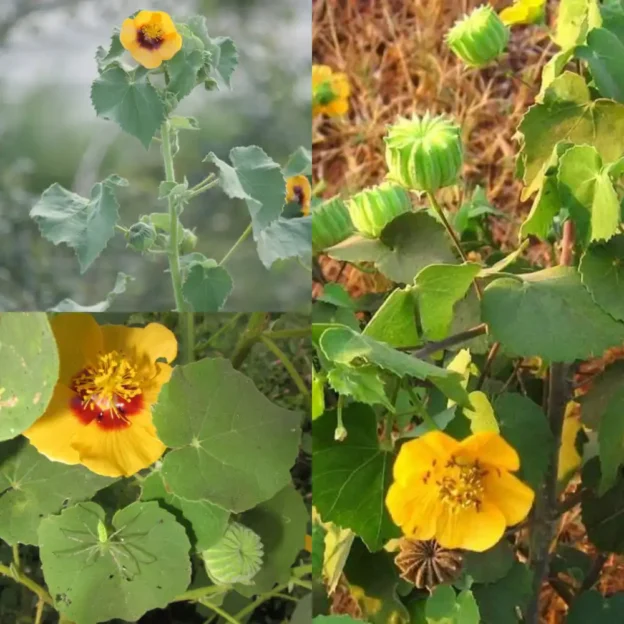HERBAL MEDICINES
🚨🚨🚨Did you know, some plants can protect your home against bad energies/ evil energies, dispelling and others related? Keep following my courses to get informed 🚨🚨🚨
Introduction to Herbal Medicines
Herbal medicines, also known as botanical medicines or phytomedicines, are derived from plants and plant-based substances. They have been used for centuries across various cultures as a primary form of healthcare, long before the advent of modern pharmaceuticals. These natural remedies are made from roots, leaves, flowers, seeds, or bark, and are used to prevent, treat, or manage various health conditions.
Herbal medicine draws its foundation from traditional practices, such as Ayurveda, Traditional Chinese Medicine (TCM), and Indigenous healing systems, which emphasize the balance of body, mind, and spirit. Over time, these practices have evolved, blending traditional knowledge with modern scientific research to validate the effectiveness of many herbs.
With growing interest in holistic and natural approaches to health, herbal medicines are increasingly popular worldwide. They are valued for their perceived safety, cost-effectiveness, and minimal side effects when used appropriately. However, the use of herbal remedies requires care, as some herbs can interact with conventional medications or have adverse effects if misused.
In modern healthcare, herbal medicines are often categorized as dietary supplements and are subject to varying degrees of regulation depending on the country. As research continues, the integration of herbal medicines with conventional treatments offers promising pathways for comprehensive healthcare solutions.
COURSE 1: ABUTILON INDICUM SEEDS
(Utubuto tw’Umuhati)
Abutilon indicum, commonly known as Indian mallow or country mallow, is a medicinal plant whose seeds play an important role in traditional medicine. The seeds of Abuliton indicum are valued for their numerous therapeutic properties. Here are their key roles:
1. Laxative Effect
The seeds are known to have mild laxative properties and are used to treat constipation by aiding bowel movement.
2. Diuretic Properties
They help increase urine production, making them useful for treating urinary tract infections and conditions involving water retention.
3. Anti-inflammatory and Analgesic Use
The seeds are used to reduce inflammation and alleviate pain, especially in conditions like arthritis.
4. Wound Healing
Traditionally, they are applied to wounds or ulcers to promote faster healing due to their antibacterial properties.
5. Aphrodisiac Effect
In some systems of traditional medicine, the seeds are believed to enhance libido and are used as a natural aphrodisiac.
6. Antioxidant Properties
Rich in beneficial compounds, the seeds help in reducing oxidative stress and maintaining overall health.
7. Respiratory Health
They are sometimes used to relieve respiratory issues like cough and asthma by acting as an expectorant.
8. Nutritional Benefits
The seeds are a source of essential nutrients like proteins, fatty acids, and vitamins, contributing to overall nutrition.
HOW TO USE ABUTILON SEEDS
Abutilon indicum seeds can be used in various forms depending on the health issue being addressed. Below are some common methods of usage:
1. As a Powder
Preparation: Dry the seeds and grind them into a fine powder.
Dosage: Take 1–2 grams of the seed powder mixed with honey, warm water, or milk.
Uses: Effective for constipation, as an aphrodisiac, and for general health improvement.
2. As a Decoction (Herbal Tea)
Preparation: Boil 1 teaspoon of seeds in 2 cups of water until it reduces to half. Strain the liquid.
Dosage: Consume 1–2 times daily.
Uses: Useful for respiratory issues, urinary tract infections, and as a diuretic.
3. As a Paste
Preparation: Grind the seeds with a little water to make a paste.
Application: Apply the paste directly to wounds, ulcers, or inflamed areas.
Uses: Promotes wound healing and reduces inflammation.
4. In Infused Oil
Preparation: Soak the seeds in a carrier oil (e.g., sesame or coconut oil) and gently heat it. Allow it to cool and strain the oil.
Application: Use the oil for massage.
Uses: Helps relieve joint pain and inflammation.
5. With Milk or Honey
Preparation: Mix ground seeds with warm milk or honey.
Dosage: Consume before bedtime.
Uses: Acts as a mild laxative and improves digestion.
Precautions
1.Avoid excessive use to prevent side effects like diarrhea or stomach discomfort.
2.Not recommended for pregnant or breastfeeding women without medical advice.
Prepared by Jean d’Amour NIYOMWUNGERI (Education Specialist)
Whatsapp:+250788761739
E-mail: moc.liamg@408naejoemor





